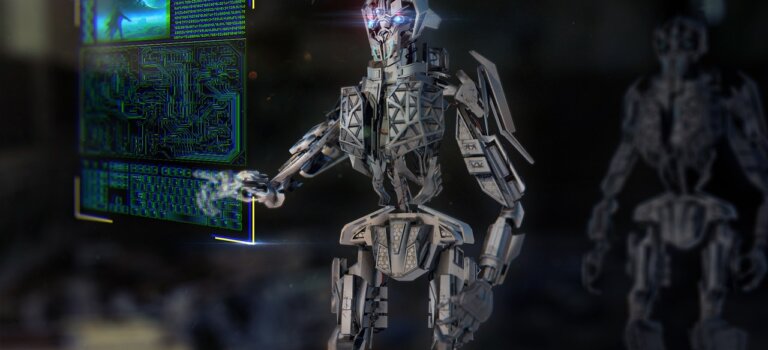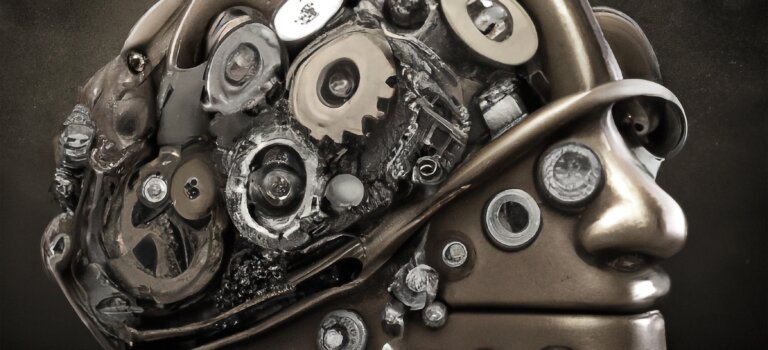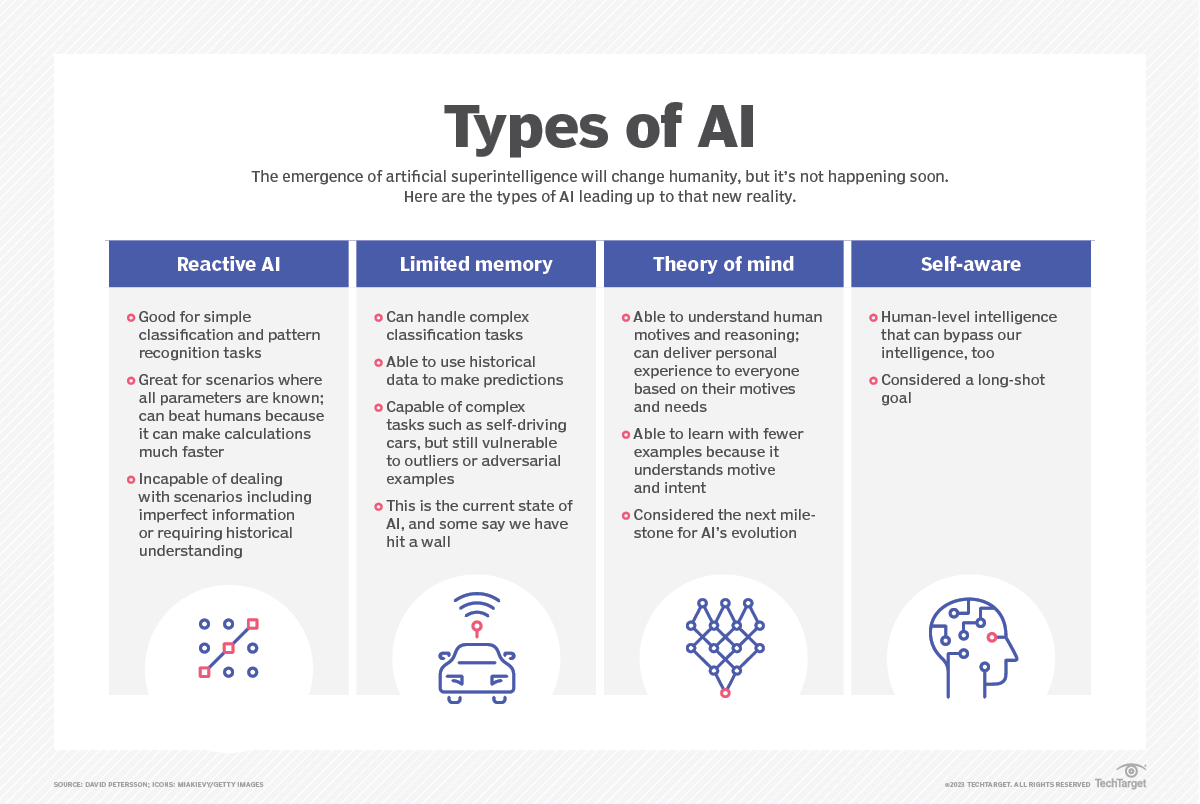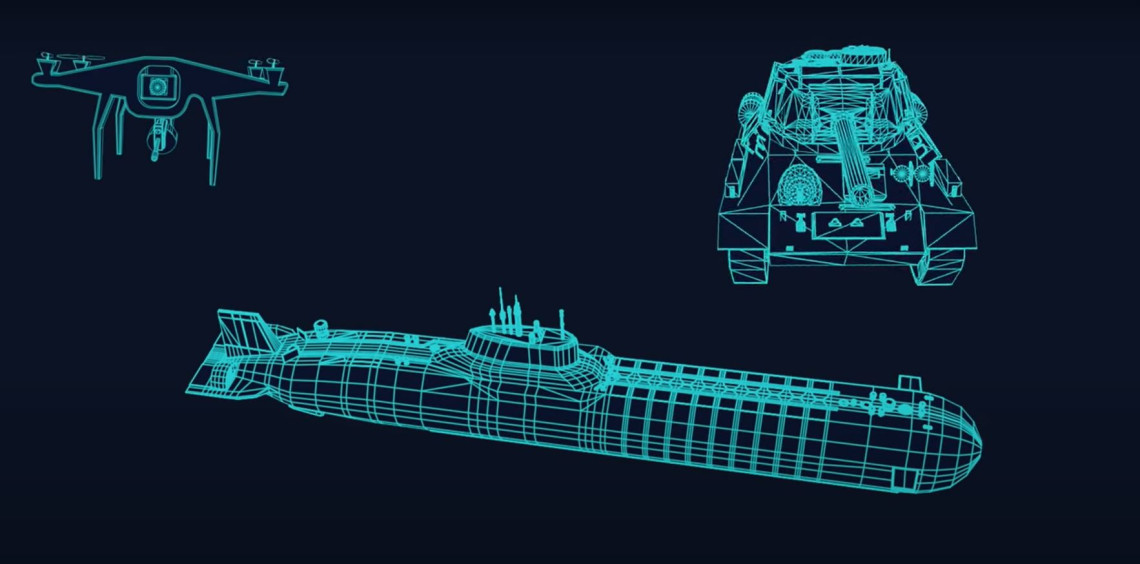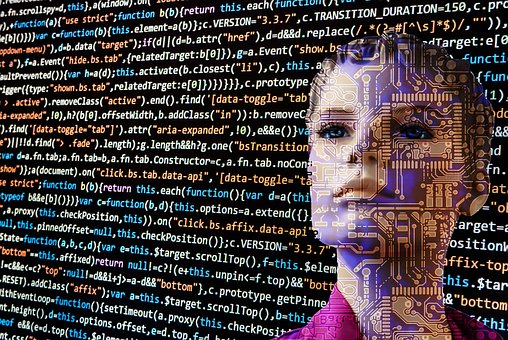Artificial intelligence(AI) is intelligence demonstrated by computers, as opposed to human or animal intelligence. “Intelligence” encompasses the ability to learn and to reason, to generalize, and to infer meaning. AI applications include advanced web search engines (e.g., Google Search), recommendation systems (used by YouTube, Amazon, and Netflix), understanding human speech (such as Siri and Alexa), self-driving cars (e.g., Waymo), generative or creative tools (ChatGPT and AI art), automated decision-making, and competing at the highest level in strategic game systems (such as chess and Go).

Overview on future AI
If research into artificial general intelligence produced sufficiently intelligent software, it might be able to reprogram and improve itself. The improved software would be even better at improving itself, leading to recursive self-improvement. Its intelligence would increase exponentially in an intelligence explosion and could dramatically surpass humans. Science fiction writer Vernor Vinge named this scenario the “singularity”. Because it is difficult or impossible to know the limits of intelligence or the capabilities of superintelligent machines, the technological singularity is an occurrence beyond which events are unpredictable or even unfathomable.
In the past, technology has tended to increase rather than reduce total employment, but economists acknowledge that “we’re in uncharted territory” with it. A survey of economists showed disagreement about whether the increasing use of robots and artificial intelligance will cause a substantial increase in long-term unemployment, but they generally agree that it could be a net benefit if productivity gains are redistributed.[211] Risk estimates vary; for example, in the 2010s Michael Osborne and Carl Benedikt Frey estimated 47% of U.S. jobs are at “high risk” of potential automation, while an OECD report classified only 9% of U.S. jobs as “high risk”. The methodology of speculating about future employment levels has been criticised as lacking evidential foundation, and for implying that technology (rather than social policy) creates unemployment (as opposed to redundancies).

10 facts about future of artificial intelligence
#1.Transportation is one industry that is certainly teed up to be drastically changed by computer. Self-driving cars and AI travel planners are just a couple of facets of how we get from point A to point B that will be influenced by it. Even though autonomous vehicles are far from perfect, they will one day ferry us from place to place.
#2.Manufacturing has been benefiting from computers for years. With AI-enabled robotic arms and other manufacturing bots dating back to the 1960s and 1970s, the industry has adapted well to the powers of it . These industrial robots typically work alongside humans to perform a limited range of tasks like assembly and stacking, and predictive analysis sensors keep equipment running smoothly.
#3.It may seem unlikely, but AI healthcare is already changing the way humans interact with medical providers. Thanks to its big data analysis capabilities, AI helps identify diseases more quickly and accurately, speed up and streamline drug discovery and even monitor patients through virtual nursing assistants.
#4.Artificial intelligance in education will change the way humans of all ages learn. AI’s use of machine learning, natural language processing and facial recognition help digitize textbooks, detect plagiarism and gauge the emotions of students to help determine who’s struggling or bored. Both presently and in the future, Artificial intelligance tailors the experience of learning to student’s individual needs.
#5.Journalism is harnessing artificial intelligance too, and will continue to benefit from it. One example can be seen in The Associated Press’ use of Automated Insights, which produces thousands of earning reports stories per year. But as generative AI writing tools, such as ChatGPT, enter the market, questions about their use in journalism abound.
#6.Most people dread getting a robo-call, but AI in customer service can provide the industry with data-driven tools that bring meaningful insights to both the customer and the provider. AI tools powering the customer service industry come in the form of chatbots and virtual assistants.
#7.The global Artificial intelligance market is booming. It will reach 190.61 billion dollars by 2025, at a compound annual growth rate of 36.62 percent.
#8.There will be more computer assistants than people in this world. Forecasts indicate that there will be 8.4 billion AI-powered digital voice assistant units in the world by 2024, which surpasses the total global population.
#9.Aware of the fact that 60 percent of consumers choose the best-priced offers, leading retailers are planning to implement AI systems by 2021 to optimize the pricing of their products, according to Artificial Intelligence stats released in a study by IBM.
#10.Leading research and advisory firm Gartner, Inc. predicts that over the next decade, AI-enabled proactive chatbots will boost customer experience by anticipating the needs of customers and connecting with them at an emotional level. According to Gartner, advanced chatbots will be able to process 95 percent of customer interactions, cutting the human involvement to 5 percent.
